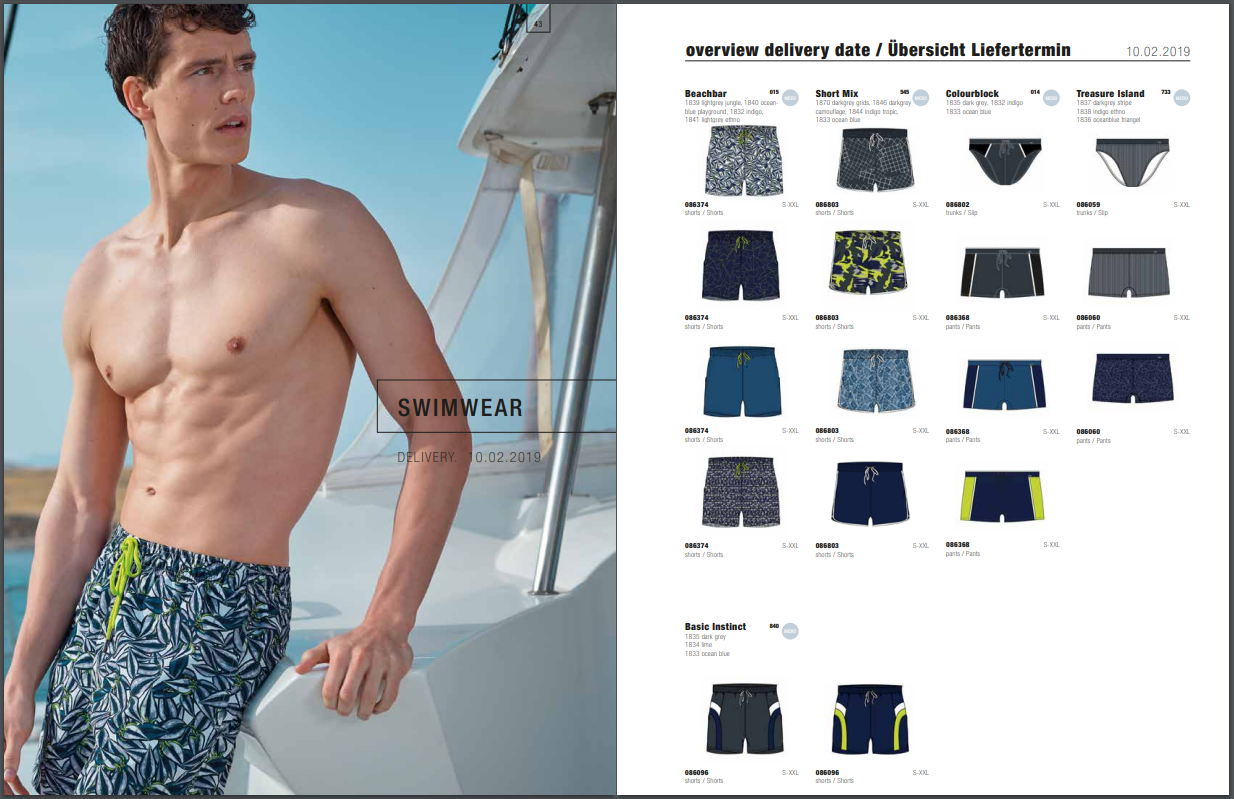Wed 26th Jan 2022
Successful appeal to the Appointed Person in swimwear trade mark non-use action
Services: Brand protection, IP litigation and disputes, Trade marks
Sectors: Brand owners, Fashion
Decisions by the UKIPO in trade mark cases can be appealed to the Appointed Person or to the court. The Appointed Person is a senior lawyer who is an expert in IP law and their decision is final, in contrast to the court, where decisions can be appealed further.
The appeal route to the Appointed Person is inexpensive (compared with court proceedings) and the standard of decisions is high. However, historically most appeals to the Appointed Person fail because it is uncommon for the UKIPO to make mistakes in the first instance decision.
In early 2020, there were 21 published decisions from the Appointed Person. Of these, only three were successful – one of which was for apparel and swimwear company Huber Holding AG who were advised by Page White Farrer partner and trade mark attorney Taryn Byrne.
In this case, Taryn successfully assisted Huber to overturn the partial revocation of two trade mark registrations for swimwear items.

Background
Solomon and Silver Limited (“Solomon”), the cancellation applicant, had sought full revocation of three Huber registrations (IR 682040 SKINY, IR 1042842 SKINY and UK 1436894 SKINY stylized) based on non-use.
Huber filed evidence in the form of a witness statement, including evidence of turnover figures, invoices and promotional materials, including catalogues. The hearing officer held that Huber’s case rested upon a selection of invoices and turnover figures. Although the turnover was modest, the low prices of the items and the continuous frequency of use meant that the hearing officer was satisfied that there had been genuine use for some goods. The hearing officer partially upheld the non-use cancellation action in respect of all three marks. The registered proprietor appealed that decision in respect of two registrations (IR040 and UK894).
Facts
Huber contended that the hearing officer had made the following errors of principle in his assessments:
- The hearing officer had erred in ignoring the catalogue evidence. The catalogues had been distributed in the UK in significant numbers, and there was evidence that customers relied upon the catalogues to place their orders.
- Even if it was not wrong to ignore the catalogues as evidence of genuine use, the hearing officer had erred in his interpretation of the entries in the invoices for “bikini briefs” and “padded triangles”. He treated them exclusively as underwear when he should have concluded they also proved genuine use for swimwear.
- The hearing officer took an inconsistent approach to the fair specification of the marks.
Solomon did not attend the hearing but filed written submissions in lieu.
Standard of review
The approach in an appeal is by way of a review, not re-hearing.
It is necessary to satisfy the Appointed Person that there was a distinct and material error of principle by the hearing officer, or that the hearing officer was wrong. Situations where the registrar’s decision will be treated as wrong encompass those where a decision is (a) unsupportable, (b) simply wrong (c) where the view expressed by the registrar is one about which the Appointed Person is doubtful but, on balance, concludes was wrong. The Appointed Person should not treat a decision as containing an error of principle simply because of a belief that the decision could have been better expressed.
Decision
In respect of the first appeal ground, it was agreed that advertising (including catalogues) is capable of providing free-standing evidence of trade mark use. It was clear, from the decision, that the hearing officer had rejected the catalogues as a free-standing form of evidence. However, no reasoning was given. It was held that the hearing officer’s failure to consider the catalogue evidence, or at least provide a reason for rejecting it, constituted an error of principle.
The Appointed Person was therefore entitled to consider the catalogue evidence and form his own opinion on its relevance.
Huber’s evidence comprised approximately 1,000 catalogues distributed in the UK, customers relied upon the catalogues to place orders, and orders had been placed for around €1 million for goods bearing the SKINY mark. It was held that the catalogue evidence constituted genuine use for “swimwear” (for IR040) and for “bathing suits” and “swimming trunks” (for UK894).
It was not necessary to consider the second ground of appeal as the first ground had succeeded.
In respect of the third ground of appeal, it was found that the likely explanation for the inconsistent treatment of IR040 and IR894 was a slip or transcription error. It was amenable to correct this error on appeal.
Conclusion
As a result of the above findings, the specifications of the registrations were revised as follows:
|
Mark |
Original Specification |
Revised specification |
|
IR040 |
Clothing, including underwear and stockings |
Underwear; leggings; vests, dressing gowns, sleepwear, loungewear, swimwear. |
|
UK894 |
Waistcoats, shirts, collars, cuffs, vests, blouses, stockings, articles of under clothing, night-wear, dressing gowns, bathing suits, bathing caps, swimming trunks; all included in Class 25. |
Shirts (being sleepwear and loungewear), vests, leggings, articles of under clothing, night-wear, dressing gowns, bathing suits, swimming trunks |
Huber was awarded costs of £1,500 as the winning party on appeal. Further, in the decision at first instance, the hearing officer had ordered Huber to pay costs of £1,500 to Solomon, as the more successful party. As a result of the modification of the decision on appeal, it was held that the parties had been equally successful, so the order was varied to “no order as to costs”, so no debt was owed to Solomon.
Key points
Decisions of the hearing officer will only be overturned if they are wrong. Appeals to the Appointed Person therefore rarely succeed because it is uncommon for the UKIPO to make mistakes in the first instance decision. If the hearing officer has applied the correct law and reached a reasonable conclusion on the facts, appellants usually face an uphill struggle if they choose to pursue an appeal to the Appointed Person.
This briefing is for general information purposes only and should not be used as a substitute for legal advice relating to your particular circumstances. We can discuss specific issues and facts on an individual basis. Please note that the law may have changed since the day this was first published in January 2021.


